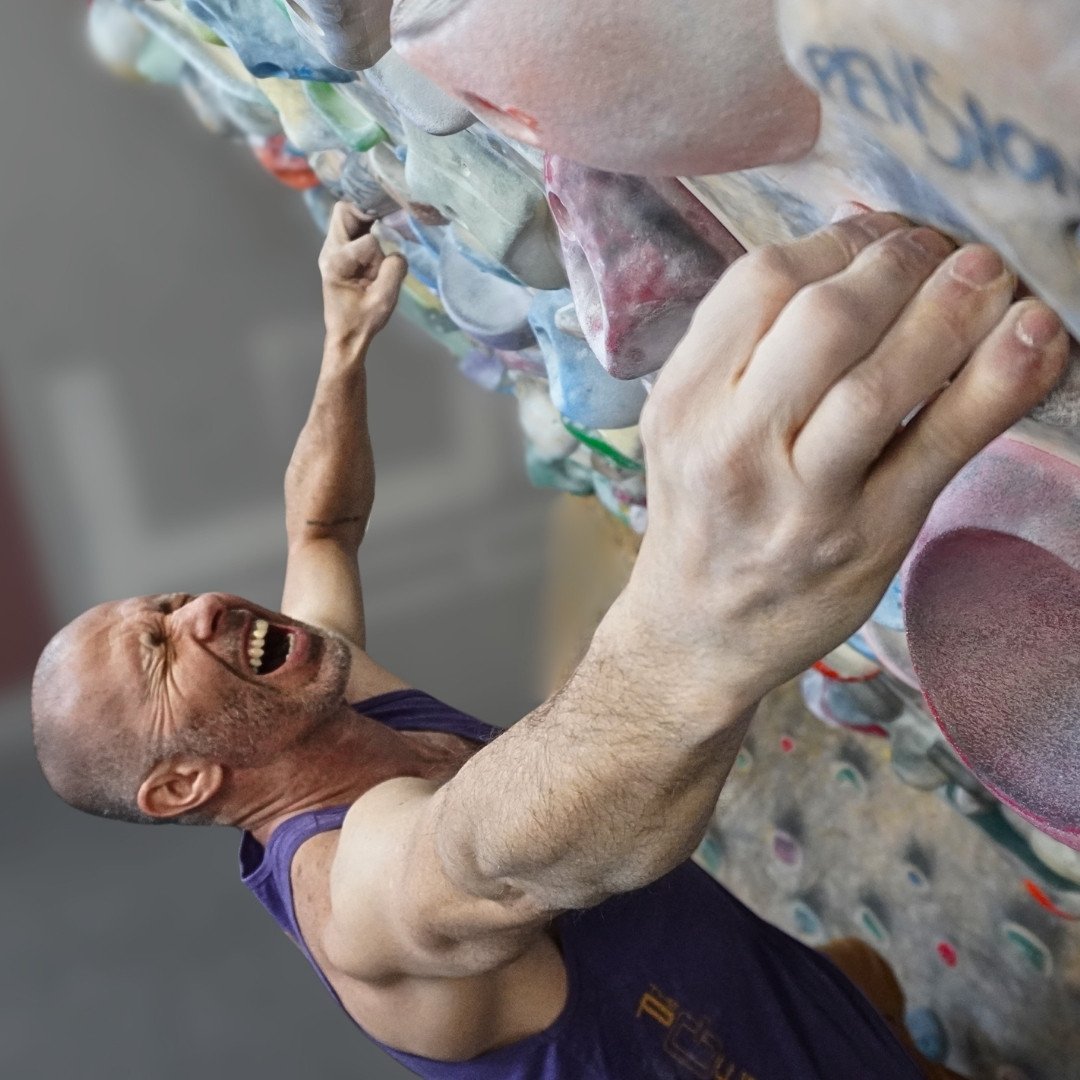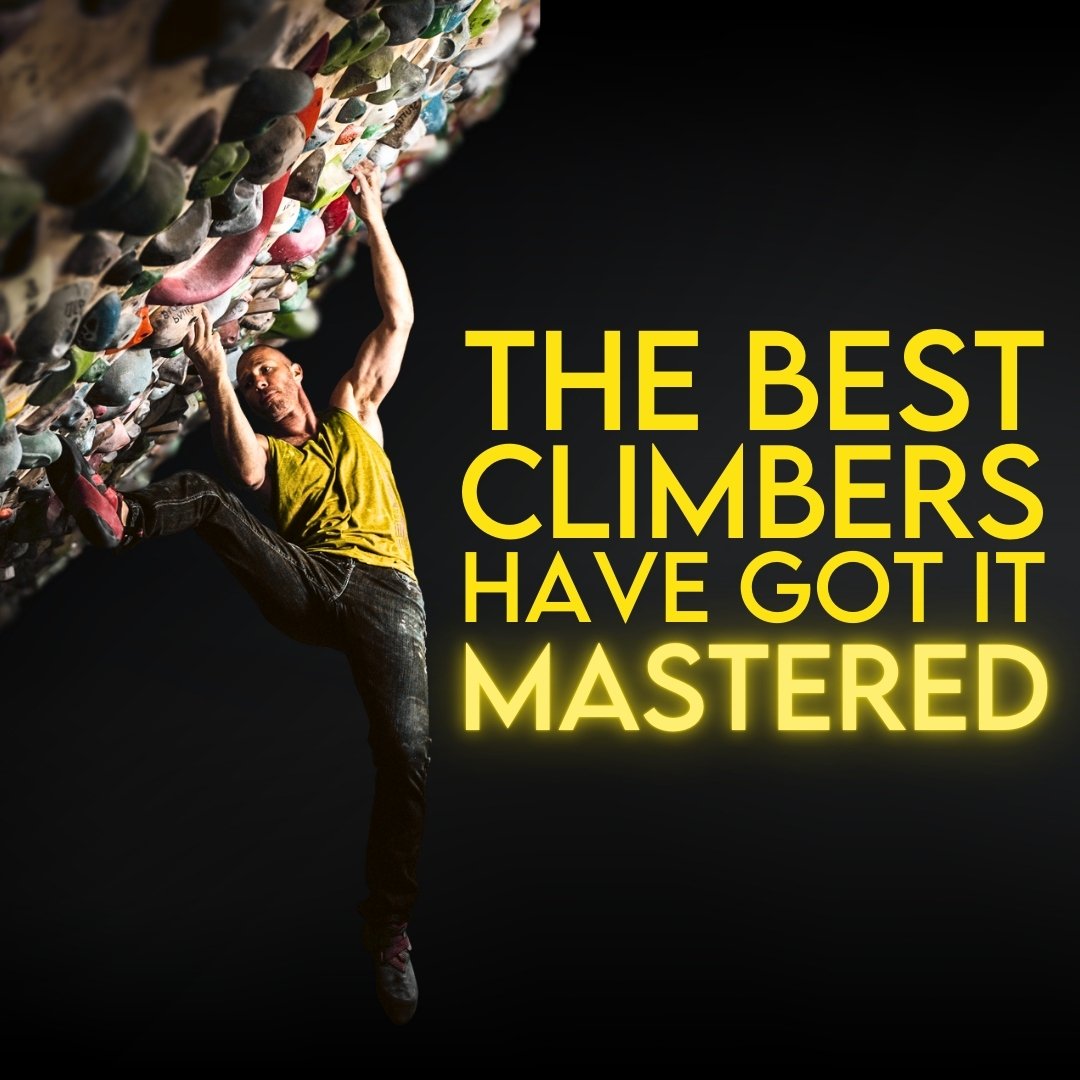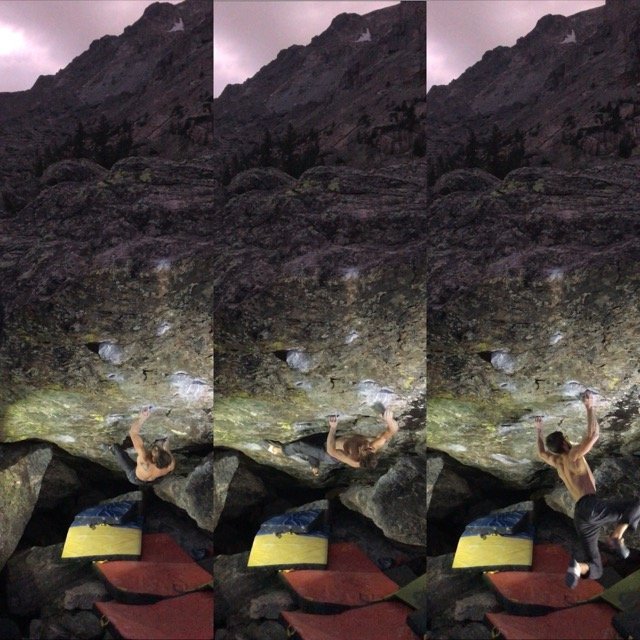The Invisible Influence of Grades
Many of us don’t like to admit it, but we have a strong emotional connection to grades. On one hand, we want to keep improving year after year, and grades are the closest thing to an objective measurement we have. On the other hand, climbing feels like something we do for “the love of the the game.” To put too much emphasis on grades feels like a dispassionate approach to the sport we love. This dichotomy can make it hard to openly talk about our relationship with grades. Without allowing ourselves the space to reflect, we develop invisible grade barriers that end up holding us back and leading to a lot of frustration.
As we advance in climbing, we eventually run into these invisible barriers we unknowingly placed. Certain grades held specific meaning to us early on and we internalized those beliefs without realizing it.
I’ve worked with climbers who have become more than strong, fit, and technical enough to climb their lifetime goals, but because of some connection they had to that grade, they struggled to feel like they would ever be prepared enough to even attempt it.

We all create narratives around grades. Here are a couple of things to look out for in your own climbing:
Do you say things like, “I’ve gotten to the point where I can consistently climb a lot of V7’s, but V8 still feels impossible,”?
Did everyone that you started climbing around all get to a specific grade and then plateau? Did you also get to that same grade +/- 1 and suddenly feel stuck?
If you’ve been climbing for 15+ years, have you updated your idea of what “hard” climbing is? In 2005, 5.14 would land you in a magazine, now it’ll just land you in a lineup with five other weekend warriors for your project.
Do you feel like focusing on grades is an inauthentic way to pursue climbing?
How long has it been since you’ve updated your personal standard for what a “hard send” is? Maybe V6 was a high level achievement for you once. Are you selling yourself short by settling for that when you could climb harder if you had more belief in yourself?
Are you giving too much reverence to the “big grades” like V10 or 5.14? Have you put it on such a high pedestal that it’s placed out of reach?
Are you busy chasing the higher grades that you used to climb rather than focusing on where you’re at right now? What if you spent a year climbing the grades that you’re currently fit for? Would that get you back to where you want to be faster than chasing the place you feel you’re “supposed” to be at?
Grades can be so polarizing that many of us avoid discussing the topic entirely. This doesn’t make us free of their influence though. All that it does is lessen our ability to talk about and process their effect. Take some time to reflect on where you are at right now. Are the grades you’re stuck at actually your limit, or have you just convinced yourself that they are?

Toe-hooking can seem more like sorcery than other techniques, but you’re probably just going about it the wrong way.
Implementing this one simple thing can result in big performance gains in your climbing, no matter what level you’re at.
Despite being constantly present and often the reason we fail, Rhythm is the most underrated of the Atomic Elements of Climbing Movement.
Long-time friends Nate and Ravioli Biceps discuss lessons they’ve pulled from video gaming that can help inform our climbing.
There’s A LOT of great information out there on how to climb harder. But it’s tough to sort through…
Short climbers are good at getting scrunchy, and tall climbers are good at climbing extended, right? Wrong.
One of the most common places things start to fall apart is at the very beginning of the move.
We know spending time on a finishing link is smart tactics for hard climbs. So why not apply the same concept to individual moves?
Learning when and how to compensate for a weakness is a skill. And skills need to be practiced.
Lowball boulders, while not as proud, can still teach us new movement, new ways to utilize tension, and force us into finding new techniques.
I never thought I’d be recommending this, but some of y’all should be putting less effort into becoming technically better climbers.
Training principles are important, but when they creep into performance, your climbing will suffer. Nearly every time.
We have become collectors of dots. But there’s one major thing that happens when we connect dots that is entirely lost in mass dot collection: critical thinking.
Do you really have terrible willpower? Or are you surrounded by distractions and obstacles?
You have a climbing trip coming up. The rock is different. The style is different. Your pre-trip time is short and the number of days you’ll be climbing, even shorter…
Giving artificially low grades to climbs increases their perceived value for our training and development. The more something is mis-graded the more we naturally want to prioritize it.
Discussion around grades can be so polarizing that many of us avoid the topic.
Climbing starts off as this self-feeding cycle that has you wishing you could climb seven days a week. What happens when this cycle stops bringing improvement though?
Use strength to leverage every other aspect of your climbing, not replace them.
If everything you do is a finger workout, then when do your hands get a chance to recover?
There is a common theme between a grilled cheese sandwich and good training advice.
The more accurately we define our problems, the more approachable it will feel to find solutions.






























There are 3 types of climbers… but one of them is ALWAYS better.